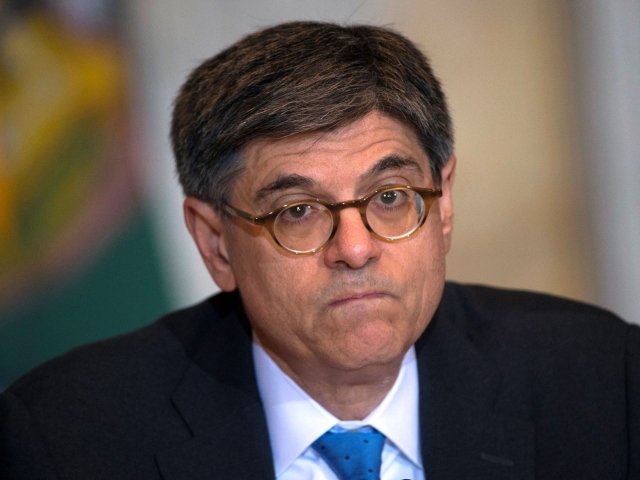In a strategic diplomatic development, President Joe Biden has put forward the nomination of Jack Lew, the former U.S. Treasury Secretary, to assume the role of the United States' ambassador to Israel. This decision arrives amid a precarious phase in the relationship between the U.S. and Israel, largely due to Biden's dissaproval of Israeli Prime Minister Benjamin Netanyahu's attempts to enact significant reforms in the Israeli judicial system. Nevertheless, Biden's selection of Lew—a highly experienced policy veteran—is seen as underscoring the administration's enduring commitment to fortifying the U.S.-Israel alliance.
At 68 years old, Jack Lew brings a wealth of public service experience to the table. He served as the U.S. Treasury Secretary from 2013 until 2017. Before this stint, he occupied various high-ranking positions under the Obama administration, including roles as the White House budget director and chief of staff. Lew was involved in putting together what many refer to as the "Iran Deal" - more formally known as the "Joint Comprehensive Plan of Action" or JCPOA which has been criticized since its ratification as a sweetheart deal that gives Iran nuclear capabilities. President Trump pulled out of the deal, however Biden has been working feverishly to put a new deal together, and has been criticized by Netanyahu and his allies for doing so. Moreover, Lew's portfolio also includes serving as the budget director under President Bill Clinton. If the Senate confirms his nomination, he will be succeeding Tom Nides, who stepped down from the ambassadorial role in July of this year.
Jack Lew is a terrible nominee for ambassador to Israel. He backed the Iran deal, ending sanctions on Iran's terror and crime; he backed Obama smearing Israel's presence in Jerusalem as illegal; he even criticized Trump for moving the embassy. He is a destructive, partisan choice https://t.co/XGoTM2wtOC
— Joel Pollak (@joelpollak) September 6, 2023
Biden's choice to nominate Lew, a political figure of substantial influence who has held several cabinet-level positions, is seen in political circles as a testament to the importance the President attaches to the ambassadorship to Israel. It's also noteworthy that Lew’s adherence to Orthodox Judaism is likely to facilitate a smoother Senate confirmation process. Interestingly, this nomination represents Lew's debut in international diplomacy, despite his long and accomplished career in domestic politics.
Recent frictions between the U.S. and Israel have been exacerbated by a controversial initiative by Prime Minister Netanyahu to overhaul Israel's judiciary. This initiative ignited widespread protests and drew sharp criticism from President Biden, who described the endeavor as "divisive." However, Biden has been careful to reaffirm his administration's steadfast support for Israel. Recent developments have seen Netanyahu and his advisers laboring over a new compromise to temporarily halt the judicial reforms for a period of 18 months. This proposal has met with stiff resistance, not just from members of Netanyahu’s governing coalition, but also from Israel's Minister of Justice, thereby complicating an already volatile situation.
USA has had few public servants that can compare to #JackLew for competence & decency. Jewish Americans can be especially proud of is devotion to Israel & the US Jewish community. I worked with Jack after Hurricane Sandy & was touched by his empathy. & yes he is also observant.
— William Rapfogel (@WRapfogel) September 5, 2023
The timing of Lew's nomination carries particular urgency due to the ongoing diplomatic initiatives by the White House. Among these is a potential "mega-deal" with Saudi Arabia, a part of which could include a historic normalization of relations between the Kingdom and Israel. The next U.S. ambassador to Israel will play a critical role in orchestrating and overseeing this delicate geopolitical enterprise.
Adding yet another layer of complexity is the ambassador's impending task of managing the increasingly intricate relationship between President Biden and Prime Minister Netanyahu. The two leaders share a four-decade-long acquaintanceship, which has recently soured due to diverging political stances. Biden's advisors are currently engaged in deliberations regarding the most appropriate setting for an upcoming meeting between the two heads of state—either at the White House or during the UN General Assembly in New York. There is a faction within Biden's advisory circle that holds reservations about an Oval Office meeting, fearing it might politically benefit Netanyahu at the cost of Biden.
🧵My thoughts regarding Biden's plan to nominate Jack Lew as U.S. Ambassador to Israel. Bottom line, more of the same from the Biden Administration. Lew is a Washington D.C. bureaucrat who played a key role in implementing the JCPOA. We cannot trust him. https://t.co/hPzNK7loFO
— Bryan E. Leib (@BryanLeibFL) September 5, 2023
To sum it all up: The nomination of Jack Lew for the role of U.S. ambassador to Israel occurs at a crucial intersection in the diplomatic relations between the two countries. Lew's extensive background in the intricacies of Washington bureaucracy, coupled with his in-depth expertise in fiscal and administrative matters, renders him an exceptionally qualified candidate for navigating the diplomatic subtleties and high-stakes dialogues that are inherent to the role. Assuming the Senate confirms his appointment, Lew's contributions are set to be instrumental as the Biden administration aims not only to bolster its relationship with Israel but also to advance broader peace initiatives in the Middle East.


